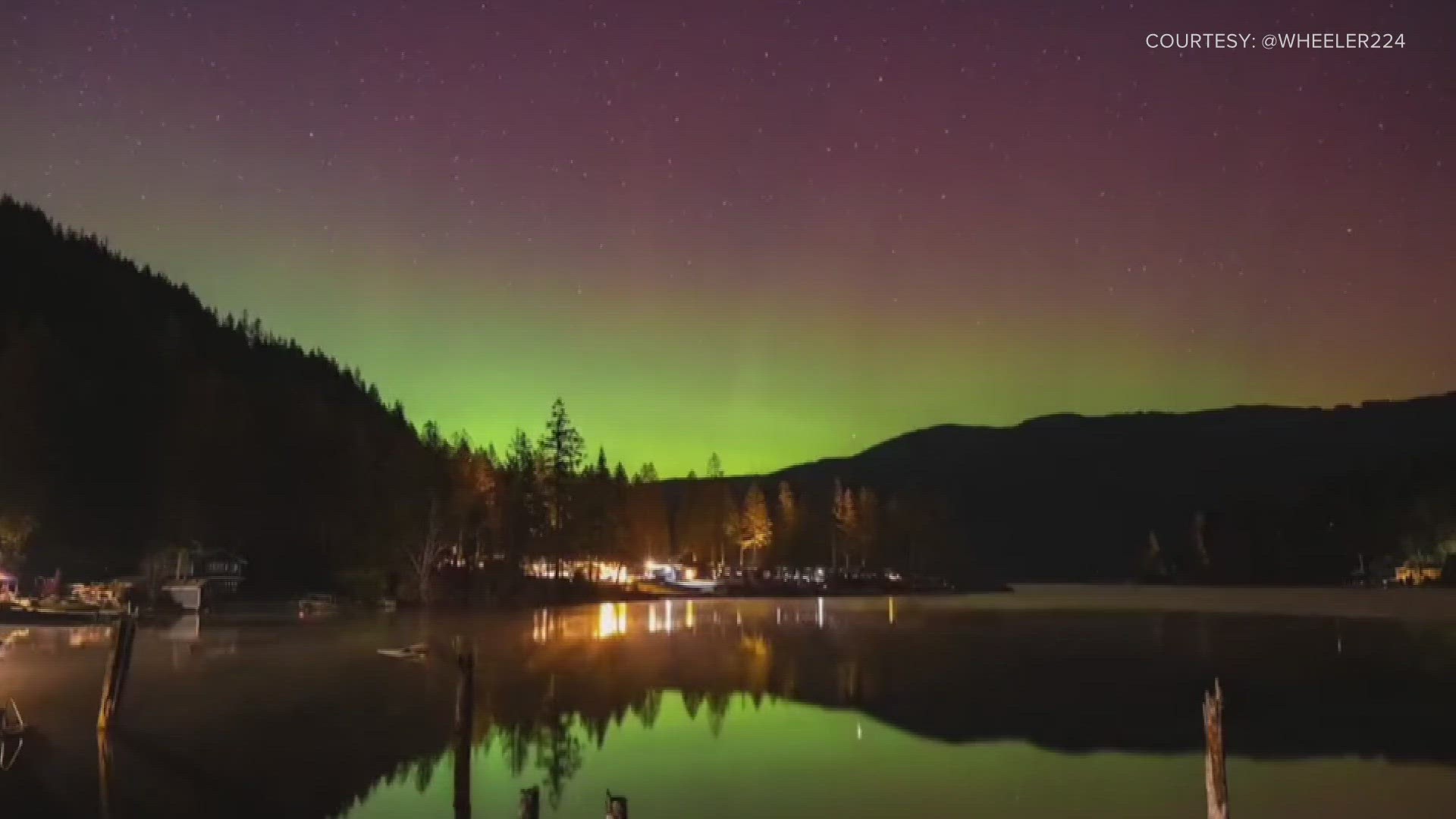WASHINGTON, USA — Current forecasts show that a recent solar storm is unlikely to cause significant visual impacts in Washington, but scientists say more chances to see the Northern Lights -- also known as an aurora borealis -- could be on the way as the sun approaches "solar maximum," likely in 2024 or 2025.
NASA says auroras are a result of the effects of solar storms. During coronal mass ejections, a kind of storm, the sun can send electrified gas toward the Earth, delivering energy and small particles down magnetic field lines. Particles can interact with atmospheric gases to produce visuals of light in the sky.
KING 5 Meteorologist Rich Marriott says the strength of the storm impacts how likely Washington is to see an aurora.
"The stronger the storm, the more it pushes the aurora away from the magnetic poles- further south to where we live," Marriott said. "The farther north you are, the closer you are to the magnetic pole, the more likely you are to see it. Alaska is very close to the magnetic pole, that's why they see aurora all the time."
The clearness of skies and cloud cover also plays a role.
"They're different than when you see them in photographs, they're not as bright," Marriott, who has seen multiple occurrences, said. "But they are beautiful and they move, they have this motion. Depending on how intense the magnetic storm is that's causing it, they're brighter and they'll move more."
While this storm's effects aren't forecasted to emit strong visuals in Washington, scientists say more could be coming soon.
"There's an 11-year solar cycle where we go from solar minimum where there are not very many storms, to a solar maximum where we have a lot of storms," Marriott said. "Right now we're expecting a solar maximum [around] 2025."
As for this week, NOAA maps show its range staying to the North, though some scientists say forecasts can only tell so much and don't want to rule the chance of seeing an aurora out altogether for northern Washington.

